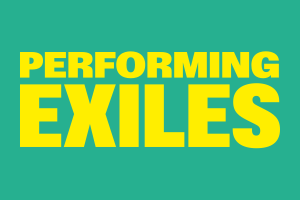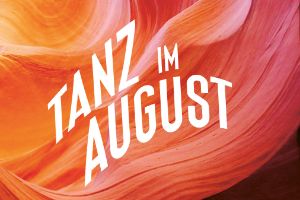
Panel
The Pioneer and his Legacy
60 years Theater der Freien Volksbühne and Haus der Berliner Festspiele

Today's Haus der Berliner Festspiele, at that time still the Theater der Freien Volksbühne © Deutsches Theatermuseum München, Archiv Ilse Buhs/Jürgen Remmler
On 1 May 1963, Erwin Piscator took over as Artistic Director of the newly built Theater der Freien Volksbühne, today's Haus der Berliner Festspiele. On the occasion of the anniversary, cultural workers remember key events in the history of the theatre and take a look at the present and future of political theatre.
60 years ago in Berlin a theatre-maker was handed the keys to a brand new theatre. The Theater der Freien Volksbühne, designed by the Berlin architect Fritz Bornemann, became the theatrical home of the director and Artistic Director Erwin Piscator, whose main priority was to analyse the crimes of the German National Socialist movement and its supporters on stage – with plays by Rolf Hochhuth such as “The Representative” and “Soldiers” and the playwright Peter Weiss’s documentary reworking of the Auschwitz trials in Frankfurt. This represented a new start for political theatre after the war. Piscator died three years later and his post was taken over first by Peter Stoltzenberg and then by Hansjörg Utzerath. In 1973 they were followed by Kurt Hübner. Hans Neuenfels was appointed Artistic Director after Hübner and Hermann Treusch served as the final Artistic Director of the Theater der Freien Volksbühne until 1992. After renting out the building for several years, at the end of the millennium the Freie Volksbühne organisation was obliged to sell the building – and since 2001 it has been home to the Berliner Festspiele.
To mark this anniversary at the Haus der Berliner Festspiele, we will look back on the building’s early days and examine the current state of political theatre. In the first section of the evening, the former Artistic Director of the Freie Volksbühne Berlin Hermann Treusch, the actors Emanuela von Frankenberg and Doina Weber, the former dramaturg of the Freie Volksbühne Berlin Christoph Rüter, the architectural critic Nikolaus Bernau and Piscator’s biographer Knut Boeser will speak of their own connections with the theatre. In the second section, there will be a discussion of the legacy and resonances of political theatre as Piscator understood it in the present day in a conversation between the Artistic Director of Kampnagel Hamburg Amelie Deuflhard, the writer and theatre-maker Daniel Wetzel (Rimini Protokoll), the choreographer and performer Joana Tischkau and the cultural scholar and director Jürgen Kuttner.
With
Nikolaus Bernau – Architectural critic
Knut Boeser – Author whose works include “Erwin Piscator. Eine Arbeitsbiographie in 2 Bänden”
Emanuela von Frankenberg – Actor
Christoph Rüter – Film-maker and former dramaturg Freie Volksbühne Berlin
Hermann Treusch – Former Artistic Director Freie Volksbühne Berlin
Reinhard von der Thannen – Stage designer
Doina Weber – Actor
Amelie Deuflhard – Artistic Director Kampnagel Hamburg
Jürgen Kuttner – Cultural scholar, director
Joana Tischkau – Choreographer, performer
Daniel Wetzel – Writer and theatre-maker
Moderation Michael Laages, Matthias Pees
